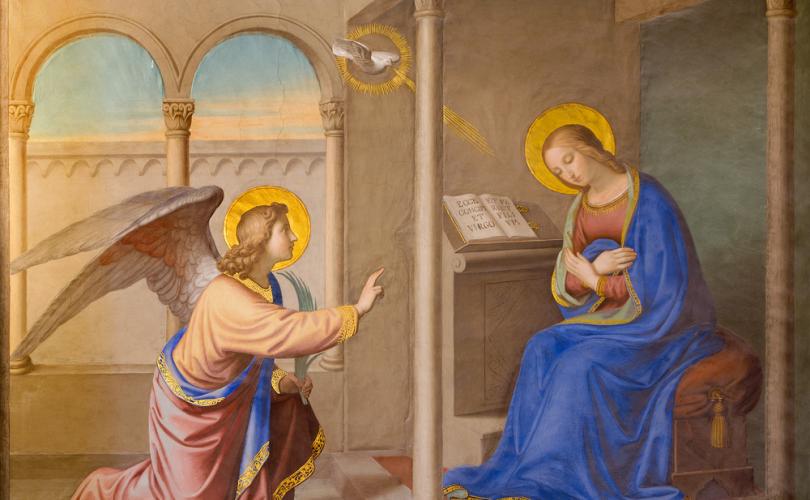
My son was being showered with attention and shouts of “Happy Birthday!” when another mom leaned over to me and quietly said, “Happy Giving-Birth-Day to you!” And I thought, “Yeah! Why is he getting all of the attention? I’m the one who went through childbirth!” Soon of course that attitude passed, and I continued celebrating my baby, who was another year older.
Women go through a lot in the process of childbearing. Let’s say a woman carries a baby for 9 months and breastfeeds that baby for the first year. That is 21 months of her body not really being her own. A woman with three children (totally theoretical here and not related to anyone I know) will have spent 63 months of her life with a baby completely depending on her for life. Jim Gaffigan describes this wonder of the female body in one of his stand-ups:
https://www.youtube.com/watch?v=P3WsEVOlkvg
Beyond the fetus and newborn stages, children are still dependent on the people raising them. So it is understandable that parents feel this deep sense of responsibility and ownership to do the best they can. But when does this calling as a parent turn into entitlement? When do we cross the line into trying to control this other little human being’s life?
More and more it seems like having a baby has become more about our own happiness than anything else. And if that is the case, how much pressure do these children feel (consciously or unconsciously) when they are responsible for such a high cause? No child will ever live up to such expectations. This is not a problem of parents caring or loving too much; it is a problem of misunderstanding who that child belongs to! I honestly find it easier to admit that my life is not my own than to admit that my children are not my own.
From the cross, Jesus cried out “My God, my God, why have you forsaken me?” These words come from Psalm 22, and in this Psalm we see striking and prophetic similarities between David’s description and what Jesus experienced on the cross: “All who see me mock me; they hurl insults shaking their heads. ‘He trusts in the LORD,’ they say, ‘Let the LORD rescue him,’” “…they pierce my hands and feet,” “They divide my clothes among them and cast lots for my garment,” just to name a few. So why am I bringing up Jesus’ crucifixion during the Christmas season? In the middle of all the talk of death, there is a section that refers back to his birth:
Yet you brought me out of the womb; you made me trust in you, even at my mother’s breast. From birth I was cast on you; from my mother’s womb you have been my God. Do not be far from me, for trouble is near and there is no one to help. (v. 9-11)
In whom is the baby trusting? On whom is he cast? It is God. This is not to take away from the wonderful calling of women to give birth and care for children, but when that calling turns into ownership and control, we make ourselves a god to that child, and not a very good one.

Mary was as humble a mother as they come. She believed the angel Gabriel when he came to give her the good news of Jesus’ birth, and she marveled at God’s fulfillment of his promises. And yet I wonder if Mary ever struggled, like I do, with giving up control. I am tempted to control my children’s behavior, to have a say in all of their decisions, and certainly to keep them from harm. One of the hardest things to witness as a mom is your child being mistreated or hurt, especially when there is nothing we can do to stop it. We want to take control and fight. And yet Mary stood helpless by the cross and watched as her beloved son was tortured and killed. “Trouble [was] near and there [was] no one to help,” not even his own mother.
One of the most powerful scenes in The Passion of the Christ is when Jesus is carrying the cross, and, the weight becoming too much for him, he falls to the ground. Mary has a flashback of Jesus as a little boy falling. She remembers how she ran to him and lifted him into her arms, and now she runs to her grown child who carries a burden too heavy for her to lift. She is helpless. There is nothing she can do to stop what is occurring. In the movie, Jesus looks at Mary and says, “See, Mother, I make all things new.” I cannot imagine the pain Mary felt as she stood by the cross that dark day. I’m sure that all she wanted to do in that moment was to run to him and pick him up and make everything better. But that was not God’s plan. And that was not the Son’s plan. For this is why he was born.
How do we let go? Both mothers and fathers understand this struggle. We were given this task of raising our children, and we want to protect them and ensure that they have a bright future. But ultimately, they are not ours. At first this sounds like bad news. But what is best for our children, even if it looks messy and out of control, is to be in the hands of our Heavenly Father, who gave up his own Son so that we (and our children) could be his.

COMMENTS
Leave a Reply












